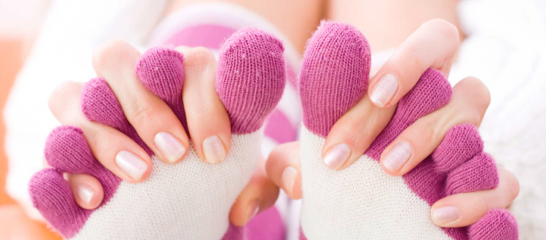Sensitivity to cold or feeling cold in the hands and feet is a common complaint in people with hypothyroidism.
When cold hands and feet persist, you should be evaluated for Raynaud’s syndrome. If your symptoms are due to Raynaud’s, beyond proper thyroid treatment, avoiding or minimizing cold exposure is a key way to avoid symptoms.
Symptoms of Hypothyroidism
Here are some other important signs and symptoms of thyroid problem.
Sensitivity to cold: A lowered metabolic rate will slow down your body’s ability to produceheat. Cold hands and feet are a common symptom of slow thyroid function.
Weakness: Sometimes, hypothyroidism causes a feeling of overall weakness as well as trembling in the muscles and slow breathing.
Depression: People suffering from depression should be tested for thyroid disorders, as thyroid-replacement medications may be a more effective treatment than antidepressants.
Fatigue: The impact of impaired thyroid function on metabolism also interferes with energy levels, making you feel unusually tired and sluggish.
Pale and dry skin: When the metabolism slows down, it may decrease sweating, causing dry skin that can lead to dermatitis, including eczema.

Menstrual irregularities: Low levels of thyroid hormone can decrease libido and cause menstrual abnormalities like increased bleeding.
Joint and/or muscle pain: Aches, tenderness and stiffness in the muscles and joints are a key sign of hypothyroid disease.
Puffiness in the face: Bloated face with swollen, puffy eyelids and especially a thickening of the neck is a symptom of advanced hypothyroidism.
Dry, thinning hair: A dramatic thinning of hair or even bald spots may be due to a dysfunctional thyroid.
Unexplained weight gain: Slow metabolism and lack of energy make it easy to gain weight and difficult to lose the stubborn pounds that start to accumulate.
Elevated blood cholesterol: People with hypothyroidism often have high cholesterol as well.








